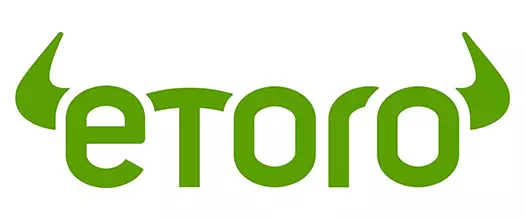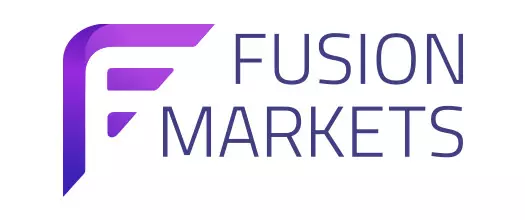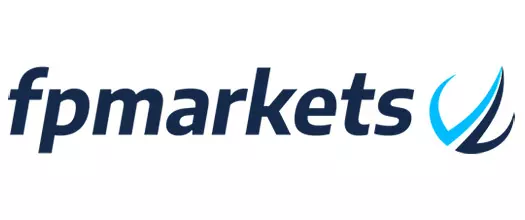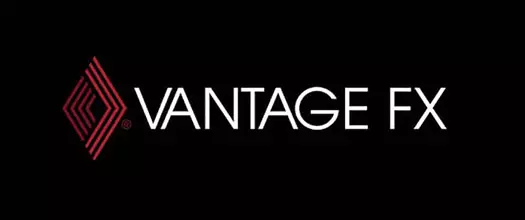- Jump to:
- Main Features of the Best ASIC Forex Brokers
- ASIC
- ASIC’s Responsibilities
- Guidelines ASIC Brokers Need to Comply with
- Customer Protection
- ASIC Requirements for Professional Trading
With forex being one of the world’s largest financial markets, its regulation is crucial to ensuring fair and safe trading conditions for all participants. One of the bodies classified as a tier-1 financial regulator is the Australian Securities and Investments Commission (ASIC). It authorises the operations of brokers that target Australian traders and mandates that financial service providers follow strict guidelines.
 Plus500 USThis content applies only to Plus500 US and clients from the United States. Trading futures involves the risk of loss.
Plus500 USThis content applies only to Plus500 US and clients from the United States. Trading futures involves the risk of loss. eToro61% of retail investor accounts lose money
eToro61% of retail investor accounts lose money Fusion Markets74-89% of retail's CFD accounts lose money
Fusion Markets74-89% of retail's CFD accounts lose money FP Markets73.85% of retail investor accounts lose money
FP Markets73.85% of retail investor accounts lose money Eightcap59.57% of retail investor accounts lose money when trading CFDs with this provider.
Eightcap59.57% of retail investor accounts lose money when trading CFDs with this provider. Global Prime74-89% of retail CFD accounts lose money
Global Prime74-89% of retail CFD accounts lose money Pepperstone75.5% of retail investor accounts lose money
Pepperstone75.5% of retail investor accounts lose money Vantage
Vantage IG67% of retail client accounts lose money when trading CFDs with this investment provider.
IG67% of retail client accounts lose money when trading CFDs with this investment provider. Admirals73% of retail investor accounts lose money
Admirals73% of retail investor accounts lose money
Our team has thoroughly evaluated all brokers listed below using TradingPedia’s exclusive methodology.
Main features of the best ASIC forex brokers
- Brand
- Trading platforms
- Minimum deposit
- Regulations
- Trading instruments
- Spreads
- Leverage for Forex CFDs
- Leverage for Crypto CFDs
- Leverage for Indices CFDs
- Deposit methods
- Withdrawal Methods
- Commission per Lot
- Contact details
Australian Securities and Investments Commission
The Australian Securities and Investments Commission (ASIC) oversees the country’s financial markets and their participants. It began operations in 1991 as the Australian Securities Commission (ASC), effectively taking over the functions of the National Companies and Securities Commission (NCSC) and the Corporate Affairs offices of the states and territories. In 1998, the organisation changed its name to ASIC to better reflect its expanded responsibilities.
It is the Australian Securities and Investments Commission Act of 2001 that describes the role, functions and powers of this independent Commonwealth Government body.
The Commission, which is responsible for the management and administration of ASIC’s operations, is composed of a Chairperson and several members. As the main regulator of the financial markets in Australia, ASIC also monitors companies and professionals that deal with superannuation (retirement savings and pensions), investments, credit, deposits and other financial services, making sure they operate in accordance with the National Consumer Credit Protection Act of 2009.
The regulation of forex brokers operating in Australia also falls under the remit of ASIC, ensuring that licensed financial service providers offer fair trading conditions to clients. The organisation issues licences to companies that wish to provide financial services to Australians, and its official register displays all licensed service providers.
Based on the stringent regulations imposed on licensed entities, ASIC ranks as a tier-1 forex regulator. In other words, it is known for its strictness and for ensuring entities are fully compliant with local operational guidelines. Even after granting a licence to a forex broker or another type of financial service provider, ASIC is responsible for the ongoing monitoring of their operations. Imposing penalties as well as revoking licences are also among the regulator’s responsibilities.
When it comes to the supervision of forex activities, ASIC is also strict about providing additional protective tools to traders, with a clear distinction drawn between retail and professional traders. Those who are inexperienced and cannot afford to trade larger volumes should have access to several customer-protection tools as well as risk-assessment functionalities. As ASIC is strict about licensed brokers following these measures, a licence from the Australian regulator indicates high-quality financial services and a safe, fair environment for everyone participating in the trading market.
ASIC’s responsibilities
According to the ASIC Act of 2001, the official financial market regulator in Australia is required to monitor the performance of the country’s financial system and maintain its integrity and proper operation. The organisation must enforce the relevant regulatory framework and provide efficient financial-market supervision.
Any information provided to ASIC must be processed and stored efficiently and in a timely manner. Whenever there is relevant information about a company or other financial services provider, ASIC is required to make that information available to the public as soon as possible.
According to ASIC, the responsibilities that fall under its remit include:
- Registering financial services providers operating in Australia
- Keeping registers available to the public
- Issuing licences to companies providing financial services or credit products in Australia
- Taking proper measures to prevent the provision of defective products
- Introducing a legislative framework to maintain the integrity of the financial market
- Granting relief from imposed legislation
- Conducting investigations of suspected breaches
- Issuing notices about any infringement of the law
- Imposing penalties on financial service providers who have breached ASIC regulations
- Prosecuting offenders
- Enforcing bans on individual activities
The financial regulator has been vested with the above responsibilities and powers to safeguard consumers from the misconduct and harms that may ensue from trading activity.
Guidelines ASIC brokers need to comply with
With ASIC being one of the strictest financial regulators on a global scale, forex brokers that wish to operate in Australia are required to meet several criteria in order to qualify for an ASIC licence. Below, you can see the full list of steps required to apply for an AFSL – Australian Financial Services Licence.
- Company legal registration – Licence applicants must first ensure they have registered their company as a legal Australian entity.
- Authorised capital – AFSL applicants must hold at least 10% of their revenue or a minimum of AU$1 million in net tangible assets (NTA). At least 50% of a company’s NTA must be held in cash or cash equivalents.
- Qualification of management personnel – Key employees and managers in the company are required to prove their competence through suitable qualifications and experience in financial-service management.
- Tools for risk management and internal control – Licence applicants must implement effective systems for risk management and internal control. Key policies of the company must include the management of components such as conflicts of interest, client funds and complaints.
- Detailed business plan – Applicants must provide a detailed business plan that includes information on the financial services the company intends to offer, a risk-management plan, strategies for development and the company’s governance model.
- Complaints and consumer rights – Applicants must provide an effective model for handling customer complaints and ensuring all consumer rights are respected.
- Licence application and annual fees – As the financial regulator suggests, the best way to apply for an AFSL is through its eLicensing system, which customises the application for each applicant. Brokers wishing to operate in Australia must pay a licence fee upon application as well as an annual fee for maintaining the licence once it has been granted. To be able to operate in Australia, forex brokers authorised by ASIC are required to abide by the regulator’s rules and meet the requirements outlined below.
- Impose mandatory leverage limits – Retail traders cannot be offered leverage higher than 1:30 on major currency pairs and 1:20 on minor crosses. Higher leverage can be accessed only by professional Australian traders who meet specific criteria.
- Guaranteed margin close-out – If margin levels fall to 50% of the required margin, ASIC brokers must close out their clients’ positions. This measure is introduced to minimise losses.
- Negative balance protection – Retail clients must be guaranteed that their losses cannot exceed the amount deposited in their accounts.
- Best execution policies and fair prices – ASIC-regulated brokers must implement the best policies for order execution, ensuring fair prices and easy market access.
Customer protection
Forex brokers that seek ASIC’s stamp of approval are required to ensure fair and safe trading conditions, and the provision of additional customer-protection tools is also included in the requirements they must meet in order to operate in Australia.
As mentioned earlier, negative balance protection must be provided to retail Australian traders. This requires brokers to ensure that traders’ losses cannot exceed the amount they have deposited in their accounts. In this way, trading with leverage will not lead to sharp losses that could leave the trader indebted to the broker.
It should be noted that negative balance protection is typically offered only to retail traders. Professionals are expected to have sufficient experience and capital to understand and mitigate the risks associated with leverage.
ASIC requirements for professional trading
As mentioned earlier, ASIC has introduced a clear differentiation between retail and professional traders. Owing to the high risk of trading leveraged assets, the regulator has introduced mandatory customer protections that may help traders manage risk levels and minimise potential losses. However, restrictions such as leverage caps and margin close-outs may not be suitable for traders seeking higher profits generated through leverage.
While ASIC-regulated brokers are required to impose a mandatory leverage cap of 1:30 on major forex pairs and 1:20 on minor pairs, they can offer higher leverage ratios to professional traders. In order to qualify for professional trading conditions, Australians must meet several requirements. Below are the standard conditions that apply to professional trading with an ASIC-regulated broker:
- Sufficient balance: Professional trading requires larger trading volumes, and traders who apply for professional accounts with ASIC brokers must provide proof of substantial trading activity. For this purpose, traders must own net assets of at least AU$2.5 million or have an annual gross income of AU$250,000 for the last two years, with such statements verified by a qualified accountant within the previous six months.
- Substantial trading volumes: Traders applying for professional accounts may be asked to provide a trading statement that shows at least 20 large-volume trades per quarter and a notional volume of at least AU$1,000,000 per quarter, generated in any four quarters within the last two years.
- Relevant experience: Professional traders who currently work, or have worked for at least one year, in a relevant financial sector may also qualify for professional accounts with ASIC brokers. Appropriate evidence must be provided to verify the trader’s experience with forex and CFD trading.
Brokers have specific criteria for granting professional trading status to their clients, with most of them clearly outlining the requirements and the application process. Usually, experienced traders must waive protections such as negative balance protection, product disclosure statements and inclusion in financial compensation schemes. At the same time, professional trading account holders benefit from improved margin rates, trading rewards and priority customer service.












